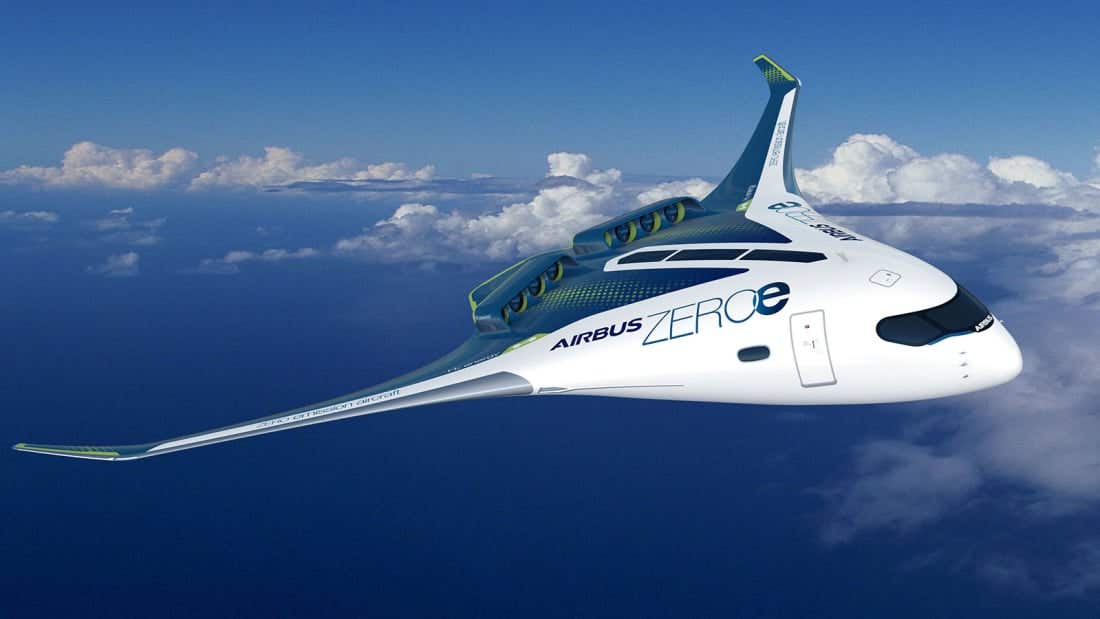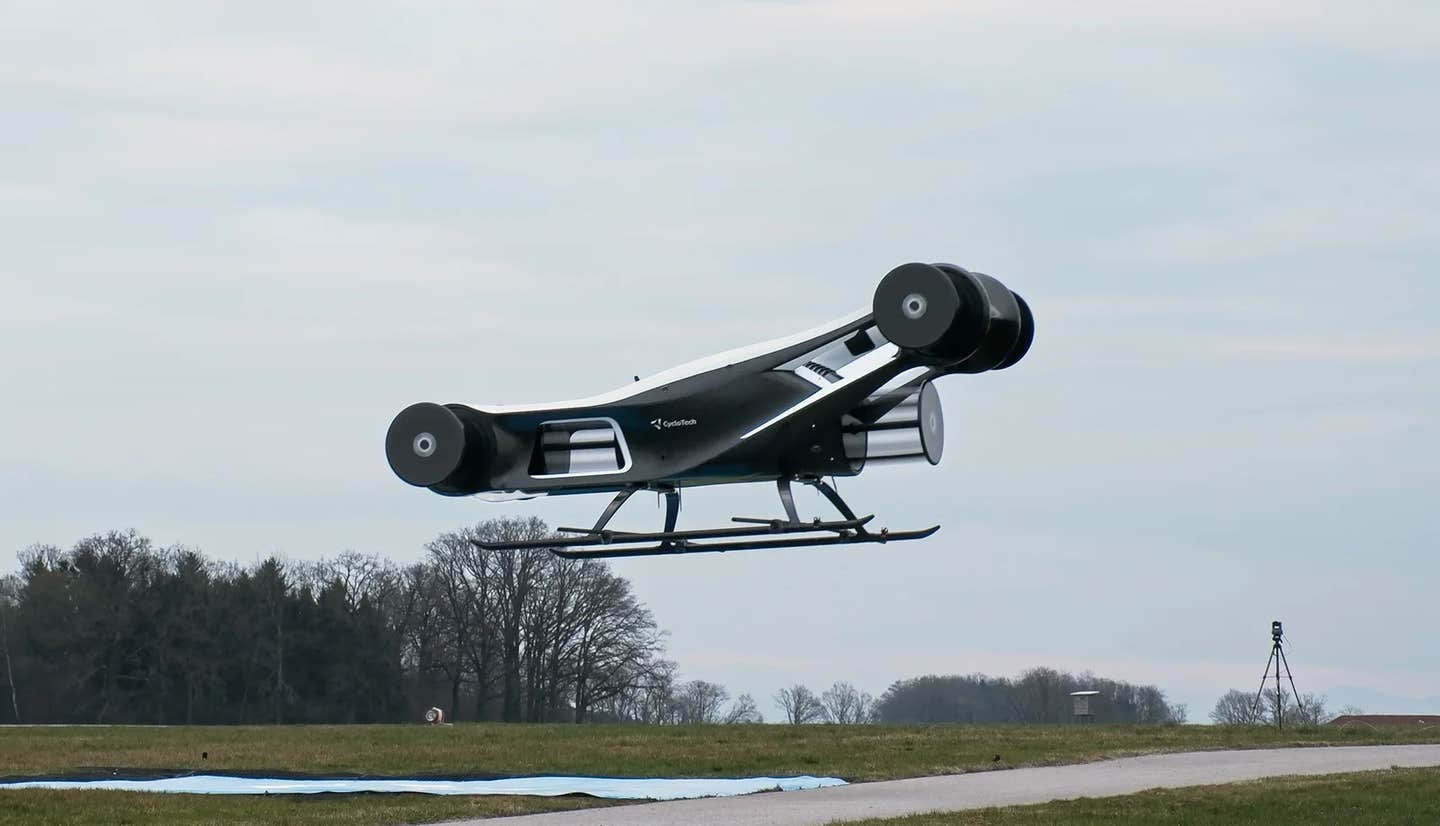Why this space age airplane could change flying forever
It looks like a spaceship, runs on fuel that up until a few years ago experts were calling “crazy,” and has barely left the drawing board

[Oct. 3, 2020: Paul Sillers]
It looks like a spaceship, runs on fuel that up until a few years ago experts were calling "crazy," and has barely left the drawing board, but in the eyes of one of the world's leading aircraft manufacturers, it's undoubtedly the future.
Not even the distant future. Airbus hopes we'll be soaring into the skies on one of its radical new designs in just 15 years, leaving the days of jet engine pollution and flight-shaming far behind us.
The blended wing aircraft is one of a trinity of eco-friendly hydrogen-fueled models unveiled recently by Airbus as part of its ambitions to spearhead the decarbonization of the aviation industry.
It's a bold plan, and one that just a few short months ago might have seemed fanciful as demand for fossil fuel-powered air travel continued to rise, apparently immune to growing environmental concerns.
But the arrival of Covid-19 and its impact on aviation could've inadvertently cleared a flight path of opportunity for efforts to rethink the technology of getting the world up into the air.
Airbus has baptized its new program ZEROe. The designs revealed aren't prototypes but a starting point to explore the tech needed in order to start building the first climate-neutral commercial planes.
"How can you possibly emerge from the pandemic, with climate neutrality as a core long-term competitiveness factor?" Airbus's chief technology officer, Grazia Vittadini, asked rhetorically, during a briefing about the new plans.
"It would be impossible not to. Even well before the crisis, it has become an acknowledged and shared view that protecting climate and protecting our environment are key indispensable factors upon which we have to build the future of flight," she said.
Why hydrogen?
Airbus's plan to bring to market a zero-emission passenger aircraft by 2035 means it needs to start plotting a course in terms of technology in 2025. In fact it needs to plot several courses.
That's because no single technology can address the energy requirements to fuel the entire spectrum of aircraft types -- from flying taxis through to short-, medium- and long-range airplanes.
While having been recently more focused on electric aviation for small airplanes, Airbus has now pivoted towards hydrogen as a candidate for solving aviation's CO2 problems.
"Our experience with batteries shows us that battery technology is not moving at the pace we want," says Glenn Llewellyn, vice president of zero emission aircraft at Airbus. "This is where hydrogen comes in, it's got several thousand times more energy per kilogram than what batteries could have today."
Llewellyn says Airbus has already started talking hydrogen with airlines, energy companies and with airports, because "this kind of change really requires a teaming across industry and inside the aviation industry in order to make it happen."
Hydrogen has long been seen as a viable fuel by academics, but until now it's had little practical support.
Perhaps now, with batteries not quite cutting it, hydrogen's time has come.
"Eighteen months ago, when people talked about hydrogen in the aerospace industry, people thought you were slightly crazy," Iain Gray, director of aerospace at Cranfield University, tells CNN Travel.
"But now hydrogen has become something that everybody is seeing as a very significant solution to the zero carbon problems," says Gray. Cranfield has been supporting ZeroAvia -- a startup that received a £2.7m ($3.3 million) grant from the UK government to develop zero emission aviation technologies, achieving the world's first hydrogen fuel cell-powered flight of a commercial-grade aircraft at Cranfield Airport in September.
Note: Materials provided above by The Brighter Side of News. Content may be edited for style and length.
Like these kind of feel good stories? Get the Brighter Side of News' newsletter.



